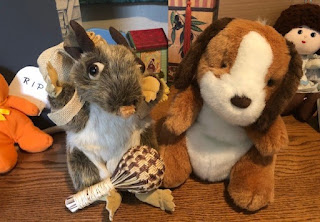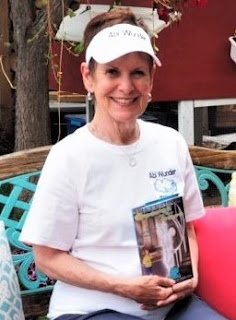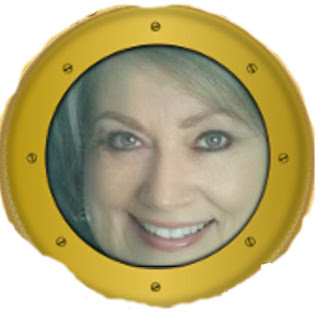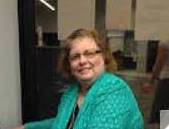A Sneak Peek at the Ins, Outs, Ups and Downs of Adverbs
Contributed by Carolyn Howard-Johnson, author of the multi award-winning
HowToDoItFrugally Series of books for writers
I am in an editing mode. The editor is at work editing the next edition of her The Frugal Editor and, honestly, barely thinking of anything else. When I ran into the chapter on adverbs, I thought it is (still!) one of the best chapters. Then I thought I wanted to share it with visitors and subscribers of Karen Cioffi’s WritersOnTheMove blog. But it’s too early for that.
Soooo…will a sneak peek do? And if I share with you now, will you come back for the real updated edition when it’s ready sometime in 2022? Or maybe offer to write a blurb. Really, anything that we authors do when we’re #SharingwithWriters or doing that #AuthorsHelpingAuthors thing? Here’s just the adverb angle on why you must come back.
We are often warned that adverbs can be overdone. Writers often take the warning too literally; they think they shouldn’t use any at all!
Of course, we wouldn't have adverbs if they didn't serve a purpose. But when we examine them—carefully (very carefully!) we often find that they duplicate a quality that the verb has already achieved for us. That makes them redundant.
Adverbs can be especially egregious when they are used too liberally as dialogue tags.
Or they are awkward. Or they slow down the forward movement of a sentence.
Authors worry when an editor takes a red pen to their adverbs. They think those edits will change their voices. Though an author can (and should) reject edits that he/she thinks aren't appropriate, these edits of adverbs rarely change a voice. Besides, voice is rarely achieved by using adverbs or most other aspects of speech we editors tackle with a vengeance. It is achieved by much subtler elements of writing. Point of view. Use of colloquialism or slang. Choice of detail.
For the most part, I think most writers worry way too much on having their voice changed and not enough about improving their writing skills.
Having said that, I worry more about editors who don’t have the training to be editors. Would an editor really remove all of a writer’s adverbs? And how would a new author know if an editor is overstepping if he/she doesn’t have lots of information on editing under his or her own little writers’ belt?
I do hope those of you who have been relying on an outside editor—someone you hired or a friend--will read The Frugal Editor—even in its old edition. And here is the deal. Read it now and let me know with an email to hojonews@aol.com. I will add you to a special list of authors that I will send an e-copy of the third edition so you won’t miss a thing. The best of two worlds—now when you need it and later when you’ll still need all the new stuff like what to do with the new rules for gender friendly pronouns.
Find the “old” second edition now at bit.ly/FrugalEditor. It includes lots on how to partner with an editor, how to save money hiring an editor, and how to hire one that is compatible with your personality and the kind of writing you do. Many good editors like Barbara McNichol (www.barbaramcnichol.com) specialize in specific genres, nonfiction vs. fictions, etc. Larry Brooks (www.storyfix.com) helps writers of fiction specifically with structure. Good editors know that it is hard to be an expert at everything.
Editing is a two-way street. There's gotta be some trust and also some confidence. That’s why this offer (keep reading!) is on the honor system. But it’s also because I am avid about editing and love to share. The more an author knows about editing, the better equipped she or he is to discard or keep edits.
So, yep. Examine every adverby "ly" word. And then use each one to your advantage. Know the other adverbs (like “even” and “just”). There is a list in The Frugal Editor (bit.ly/FrugalEditor) Especially the ones you tend to overuse. Either discard each one or use one of the methods in The Frugal Editor to turn them into more visual writing.
Here is a quick sample of the kind of advice you’ll find in the old edition where I urge readers to do one last manual edit even when they think their book is ready for the big time:
“A Good time to check your copy for each entry on this list [of the most deadly adverbs] is early in the editing process and then again when you have finished everything but your final edit. You may ask, why not after the final edit? Remember how your mother always knew when you had been rooting around in the cookie jar? You left crumbs behind. You’ll need that final edit to pick up all your crumbs—even the ones left after you have finished this search for your overused words” ©
-----
Carolyn Howard-Johnson edits, consults, and speaks on issues of publishing. Learn more about her other authors' aids at https://howtodoitfrugally.com where writers find lists and other helps on the Resources for Writers page.
She blogs on editing at http://www.thefrugaleditor.blogspot.com and all things publishing (not just editing!) at http://www.sharingwithwriters.blogspot.com.
She tweets writers' resources at www.twitter.com/frugalbookpromo




















